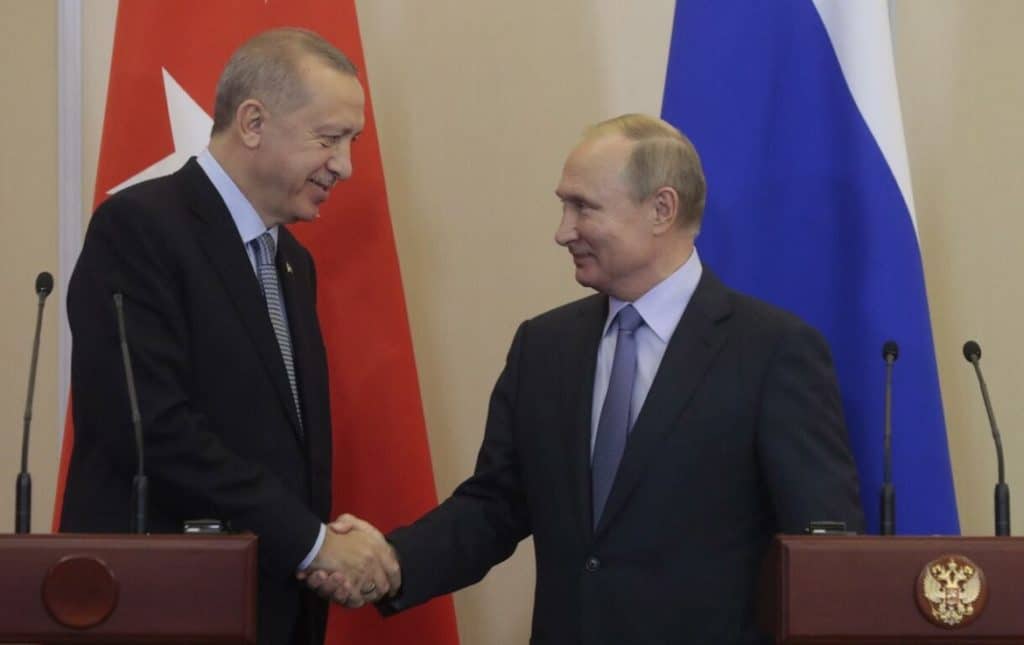By Denis Korkodinov
The attention of the international community to Libya has increased significantly after Moscow’s attempts to organize the next round of the negotiation process between the leaders of the Government of the National Accord and the Libyan National Army.
Russia is thus trying to soften the passions between Fayez al-Sarraj and Khalifa Haftar, who were close to a new escalation of the conflict because of Turkey’s intentions to provide military assistance to official Tripoli. But this turned out to be extremely insufficient.
The settlement of the Libyan conflict requires the constructive participation of all regional players, whose opinion must be taken into account without fail. Because of this, Russia and Turkey are only able to initiate a process of discussion of the existing problem.
However, it would be a mistake to think that Vladimir Putin and Recep Erdogan can lead this process, since decisions regarding the future development of Libya can be taken exclusively collectively. And, apparently, in Moscow after the refusal of Khalifa Haftar to sign an armistice agreement, the leaders of the countries realized their mistake. For this reason, the main round of negotiations in an expanded format was scheduled in Berlin.
To achieve a real ceasefire, absolutely all regional players must withdraw their armed forces beyond the front line. This applies primarily to Turkey, Egypt and the United Arab Emirates. In addition, Russia, the United States, France and Germany should make every possible diplomatic effort to try to ensure a compromise in the opinions of the warring parties.
But even this will be extremely insufficient if terrorist organizations , such as Liva al-Ummah, supporting the Government of the National Accord of Libya, do not lay down their arms without any preconditions. The latter task is the most difficult, since it involves direct dialogue with leaders of terrorist groups, who often do not submit to the Al-Vefak government.
A special role in resolving the Libyan crisis is given to Turkey, which has a direct interest in providing military assistance to Tripoli on the basis of two agreements: a memorandum of understanding and an agreement on maritime borders.
At the same time, the real goal of Turkey in Libya still raises questions, since until recently, Ankara considered the Libyan file as a secondary one. At the same time, Recep Erlogan has repeatedly publicly stated that his troops will not directly participate in hostilities against the forces of Khalifa Haftar.
However, after signing agreements with the Al-Vefak government, Turkey urgently relocated to Libya armed groups previously operating in the Syrian province of Idlib. And the fact that military mercenaries will not fight is doubtful, since these Syrian fighters are professional killers who were sent to Libya for the sole purpose of killing.
Formally, Ankara denies the presence of its military mercenaries, with which the US Embassy in Libya, acting from Tunisia, does not agree. According to the reports of the American embassy, pro-Turkish militants are indeed in Libya in order to carry out punitive missions.
In turn, the forces of Khalifa Haftar are attempting to exert pressure on the Government of the National Accord and impede the Turkish military campaign. To this end, the Libyan National Army captured the city of Sirte and a number of other settlements controlled by the official Tripoli.
The capture of Sirte is of strategic importance, as this city opens a direct road to Misrata, the main outpost of the Al-Vefak government. It is no coincidence that the Islamic State held this city for a long time, since those who own Sirte own all of Libya.
Now the eastern part of Misrata is completely unprotected, which creates big problems for the local militia, which is forced to choose between providing assistance to the Government of the National Accord and protecting its city. Meanwhile, after the capture of Sirte, it is expected that the next target of Khalifa Haftar will be Misrata, and then Tripoli.
The international community understands the importance of resolving the Libyan problem. However, to fully resolve the crisis, the will of all parties to the conflict is needed. Moreover, it is necessary to convince Fayez al-Sarraj to stop relying on terrorist groups in Libya and to allow the international community to fight against them without hindrance. If this task can be completed, it will be possible to discuss a form of political resolution of the Libyan crisis.
(The opinions expressed in this article are solely those of the author and do not necessarily reflect the views of World Geostrategic Insights)







